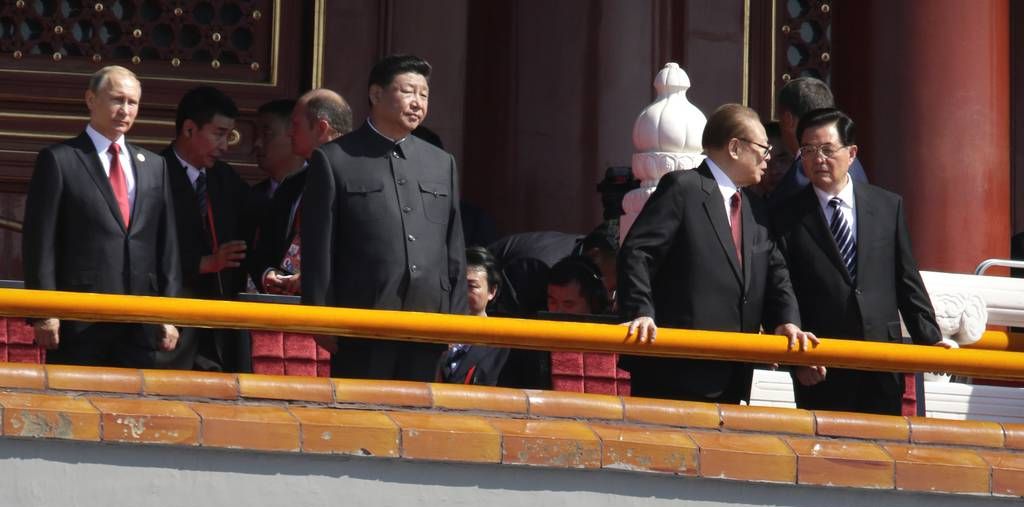From the personal to the geopolitical, harmful ideologies continue to be a primary factor driving destruction and conflict in the world. Ideology could be best defined as the adherence to pre-supposed beliefs (also known as doctrines, or dogma) even in the presence of evidence that those beliefs are erroneous or fallacious. This is due to our evolved preference for certainty and aversion to the unknown.
In the mind of someone who is able to freely think and engage in critical thought, the following will occur when an overarching belief is challenged:
[Overarching belief of X] -> [encounter with evidence that contradicts belief] -> [closer scrutiny of X is triggered] -> [additional evidence confirms contradiction of belief] -> [individual reassesses/rejects/reforms belief X to incorporate new data] -> [new beliefs established]
In the mind of an ideologue, variations of the following will occur when a doctrine is challenged:
[Overarching belief of X] -> [encounter with evidence that contradicts belief] -> [evidence is denied or discounted] -> [additional evidence is not desired] -> [belief X is reinforced rather than weakened] -> [pathological idea remains intact]
But while propaganda and brainwashing are effective in keeping ideologues from absorbing new information, they are far more effective when the flow of potentially problematic information is reduced to a slow trickle. This is precisely why the Chinese Communist Party (CCP) and other totalitarian ideologies place extremely high value on controlling the flow of information. The “Great Firewall” of China prevents the flow of information to the Chinese people, but the culture of siloing and censoring data that contradicts Party ideology is equally important to maintaining the grip of ideology over the thoughts and minds of the subjects of the CCP.
From an overarching perspective, however, the CCP itself is equally as great of a victim of ideology as its subjects. Not the least of which is the self-styled new Chairman himself, Xi Jinping. Unable to absorb new data and accurately assess the situation on the ground, Xi and the Party he leads are doomed to fallacious, pathological thinking and erroneous conclusions. Beijing’s mishandling of Hong Kong is a perfect example of the Party’s inability to incorporate new information and adapt to the changing reality: with the local liaison office misrepresenting the reality of the situation and public sentiment on the ground in Hong Kong, Beijing’s response could not have been appropriate to address the root causes of discontent. It’s a problem shared by many other insular groups that have cut themselves off from dissenting information, whether it be Russia’s Putin disposing of military officers who warned of issues with the Ukrainian invasion, or Americans seeking to disconnect from and muzzle those who challenge their political ideologies. In short, the the hallmark of an ideologue is that they are all too successful at insulating from from ideas and information that are vital to their course-correction, learning, and adaptation.
With this in mind, the solution is find a way to open their minds to the possibility of new data points and information: personal engagement. To be absolutely clear, this is not the same as political engagement, a term I associate with the failed foreign policy of the US since as long as Kissinger has been an influence. On the contrary, the financially-motivated neoliberal approach through which the West has engaged China until recently is tantamount to appeasement, ultimately enabling their harmful conduct in other countries, the ocean, and even space. What is needed to get through the barriers carefully erected by an ideologue is genuine engagement on a personal level by a skillful communicator who is able to make the interlocutor feel understood. Only once this relationship has been established will the ideologue allow him or herself to be tacitly exposed to new data. This failure of personal communication skills in conjunction with a fundamental lack of understanding of China and the CCP is where the US and the West have been falling tremendously short, resulting in an increasingly belligerent China.
I would be remiss not to point out that there is no guarantee that any ideologue will be eventually reached in this manner, but it is, ultimately, the only option to affect meaningful change. With minimal opportunity cost and as a process running in conjunction with economic and social pressure, it is a valuable, effective, and underutilized option to resolve conflict in today’s world. It only requires the communication skills to connect — and the will to do so.
